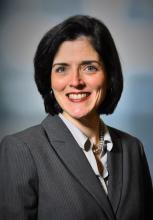The International Ethics Standards Board for Accountants® (IESBA®, the Ethics Board) today released for public comment the Exposure Draft, Limited Re-exposure of Proposed Changes to the Code Addressing the Long Association of Personnel with an Audit Client (the ED). The ED relates to the IESBA’s project to develop more robust and comprehensive provisions dealing with the long association of personnel with an audit or assurance client. It contains a basis for conclusions regarding proposals that have been finalized, as well as the limited re-exposure of three remaining issues.
The proposals being re-exposed are:
- An increase from two to five years in the cooling-off period for the engagement quality control reviewer (EQCR) on the audit of a listed entity, and to three years on the audit of a public interest entity (PIE) other than a listed entity;
- An alternative approach to the cooling-off requirements for PIE audits in the Code of Ethics for Professional Accountants (the Code) where jurisdictions have established different but robust legislative or regulatory safeguards to address the threats to auditor independence created by long association; and
- A revised approach to determining how long an individual should cool off after having served either as an engagement partner (EP) or as an EQCR, or in a combination of roles, for only part of the seven-year period they have served as a Key Audit Partner.
“In developing the new EQCR cooling-off proposal, the board has been particularly sensitive to public interest concerns about the need for a ‘fresh look,’ given the EQCR’s important role on the audit and proximity to the audit issues,” said IESBA Chairman Dr. Stavros Thomadakis. “At the same time, the board has found it also in the public interest to give appropriate weight to the practical consequences of implementation, given that the availability of individuals suitably qualified to act in an EQCR role tends to be more limited. The board believes that the proposal is balanced and, importantly, that its benefits to enhancing public trust in auditor independence outweigh the costs in terms of some added complexity in implementation in an already complex area.”
Included in the ED are revised provisions addressing other long association proposals that the IESBA has now finalized, including:
- An increase in cooling-off period for EPs from two to five years on audits of all PIEs; and
- Additional restrictions on activities that can be performed during the cooling-off period.
“Feedback on the first exposure draft in August 2014 indicated broad support for the IESBA’s intention to enhance the long association provisions in the Code,” noted IESBA Technical Director Ken Siong. “However, the diversity of views among commentators across different stakeholder groups on certain issues, and new stakeholder perspectives on the challenges of overlaying some of the proposals on pre-existing jurisdictional requirements, led the board to carefully review its proposals, reaffirming or recalibrating them as needed.”
To assist stakeholders in better understanding the re-exposed proposals, the ED includes a set of proposed IESBA Staff Questions and Answers, which will be issued with the final provisions to facilitate implementation.
How to Comment
The Ethics Board invites all stakeholders to comment on the ED. To access the ED and submit a comment, please visit the Ethics Board’s website at www.ethicsboard.org.
Comments on the Long Association ED are requested by May 9, 2016.
About the IESBA
The International Ethics Standards Board for Accountants is an independent standard-setting board that develops and issues, in the public interest, high-quality ethical standards and other pronouncements for professional accountants worldwide. Through its activities, the IESBA develops the Code of Ethics for Professional Accountants, which establishes ethical requirements for professional accountants. The structures and processes that support the operations of the IESBA are facilitated by IFAC. Please visit www.ethicsboard.org for more information, and follow us on Twitter @Ethics_Board.
About IFAC®
IFAC is the global organization for the accountancy profession dedicated to serving the public interest by strengthening the profession and contributing to the development of strong international economies. IFAC is comprised of more than 175 members and associates in more than 130 countries and jurisdictions, representing almost 3 million accountants in public practice, education, government service, industry, and commerce.




